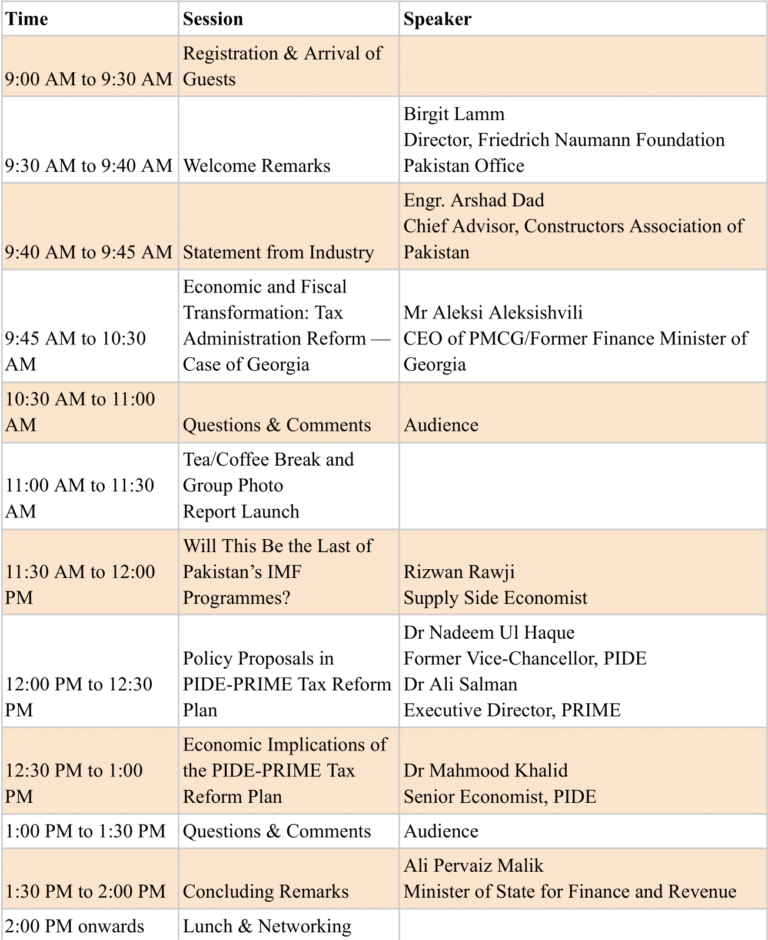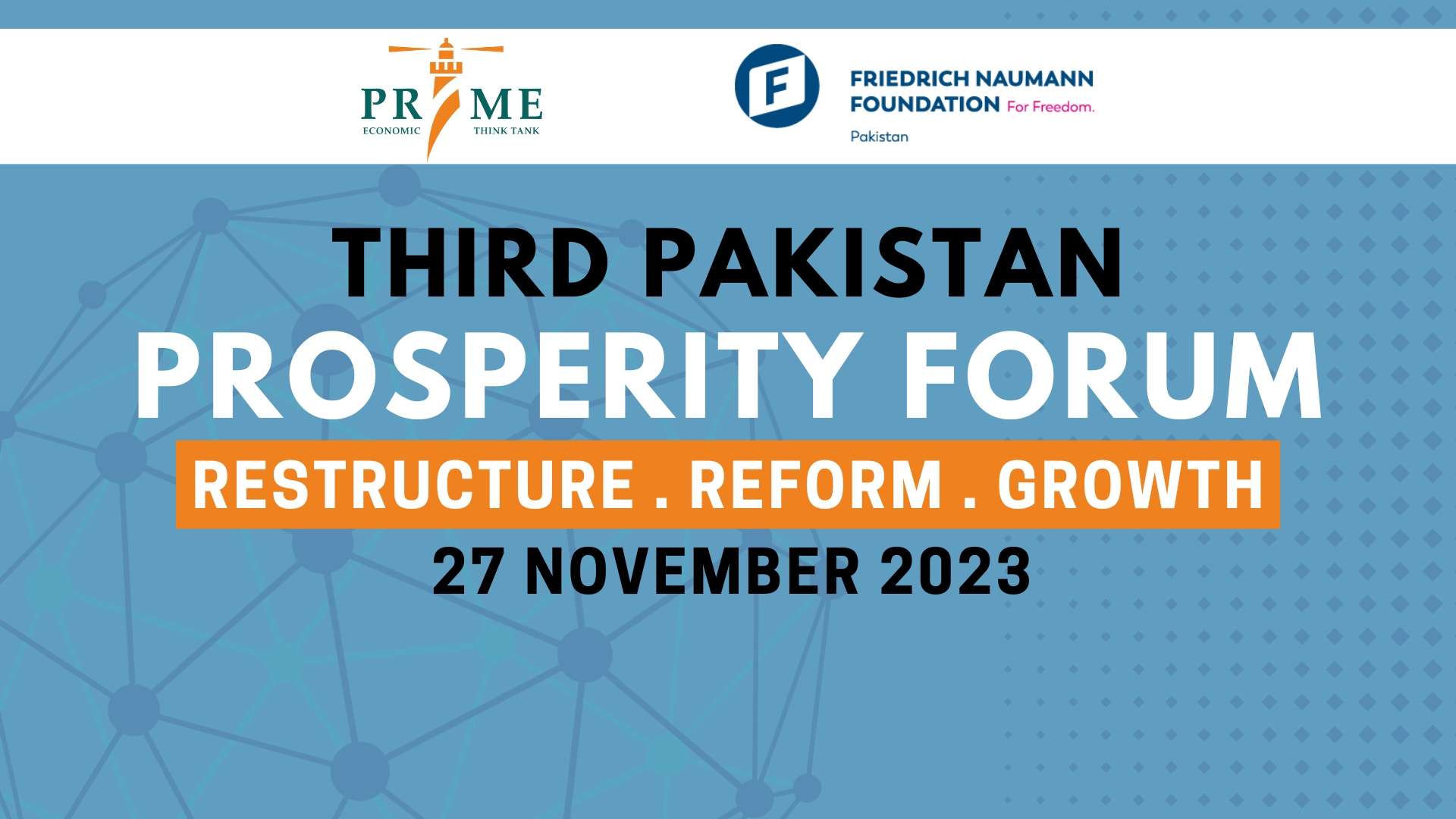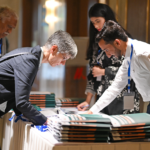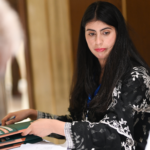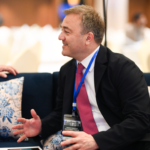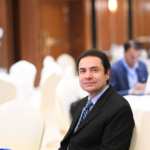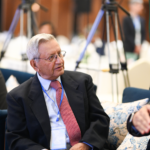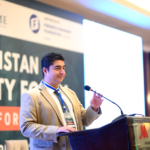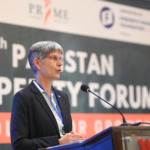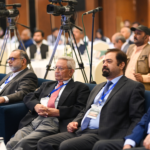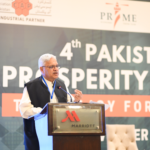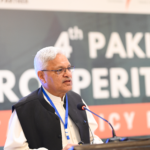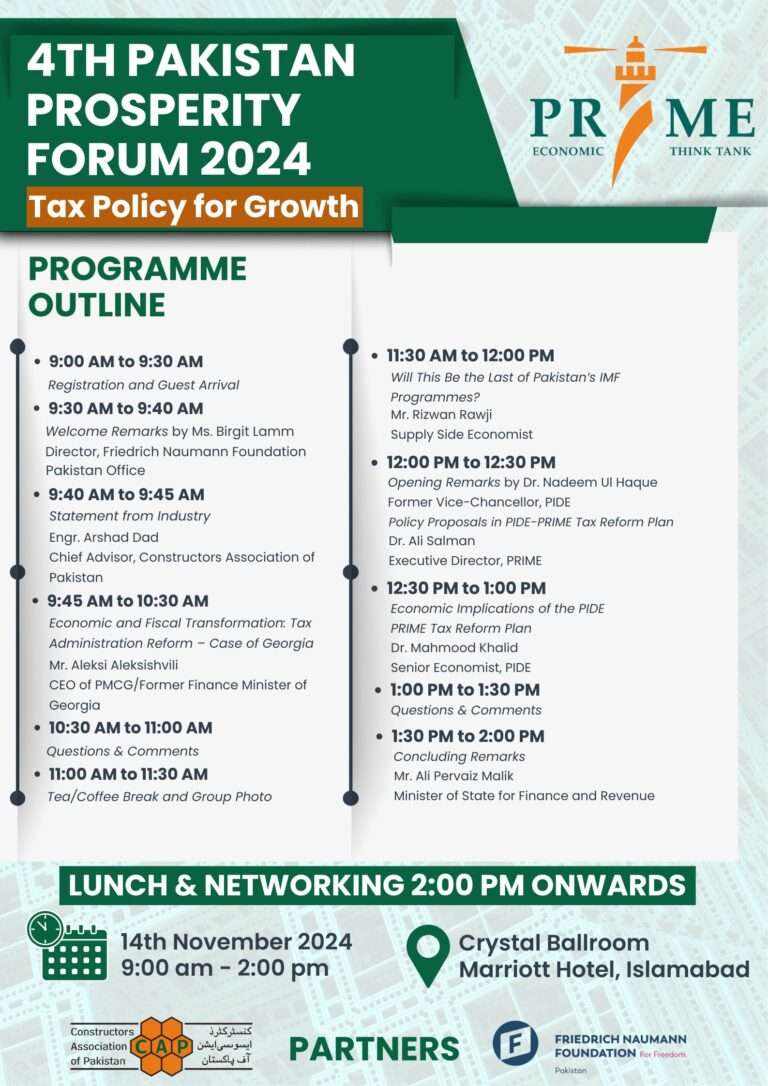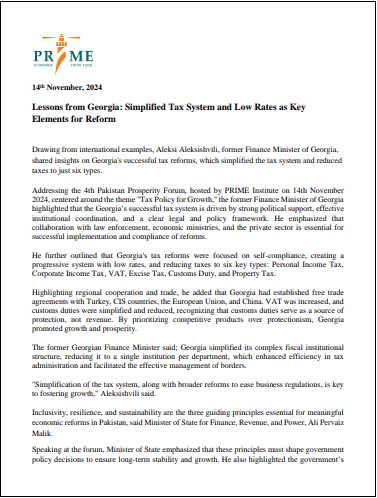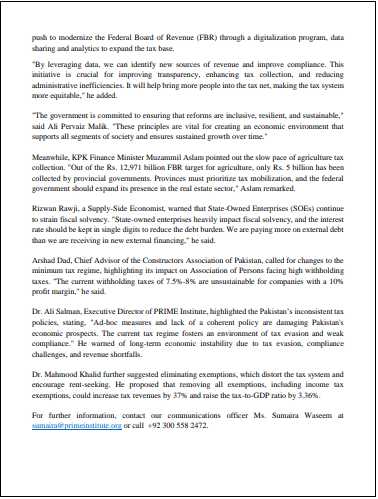4th Pakistan Prosperity Forum
Tax Policy For Growth
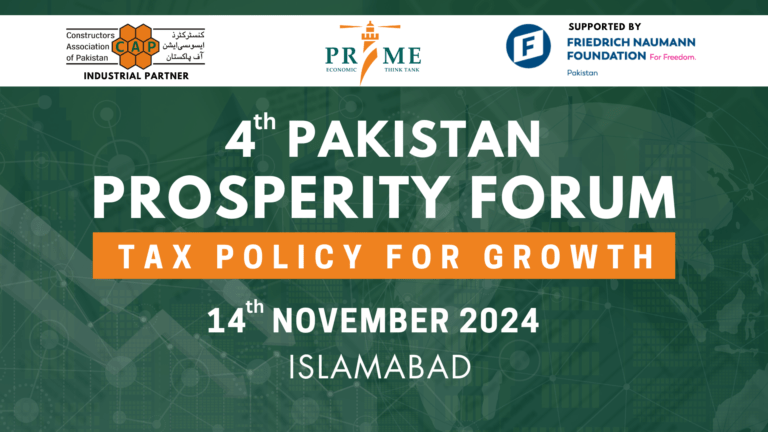
We are excited to announce the upcoming 4th Pakistan Prosperity Forum: Tax Policy For Growth, organized by the Policy Research Institute of Market Economy (PRIME) in collaboration with the Friedrich Naumann Foundation for Freedom Pakistan.
The Pakistan Prosperity Forum is PRIME’s flagship annual economic policy event, bringing together a diverse group of stakeholders, including policymakers, economists, academics, and business leaders, to explore actionable solutions for sustainable growth and prosperity.
This year’s theme, “Tax Policy for Growth,” will focus on reforming Pakistan’s tax regime to drive economic expansion.
In recent years, the government has emphasized tax enforcement over much-needed reforms in tax policy. At this year's forum, we will examine opportunities for improvement in the current tax system.
We are honored to have Mr. Aleksi Aleksishvili, former Finance Minister of Georgia and architect of significant tax reforms, as our keynote speaker.
In collaboration with the Pakistan Institute of Development Economics (PIDE), PRIME will also present a comprehensive tax reform proposal as an alternative to the existing regime.
We are pleased to share that the Minister of State for Finance and Revenue, Mr. Ali Pervaiz Malik will be addressing the 4th Pakistan Prosperity Forum as Chief Guest.
Event Details:
Date: Thursday, 14th November 2023
Time: 09:00 AM to 2:00 PM
Location: Islamabad. Pakistan.
Programme Outline:
